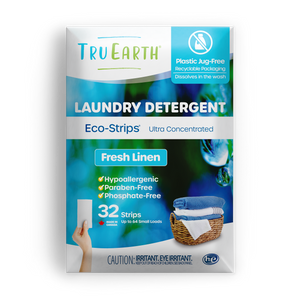Instilling a sense of environmental responsibility in children is not just about imparting knowledge; it's about fostering a mindset that values and protects our planet.
Teaching kids to be environmentally friendly sets the stage for a future generation that cares deeply about the Earth. In this article, we'll examine the best things to teach your kids about being environmentally friendly, laying the foundation for a sustainable and eco-conscious mindset.

The Basics of Sustainability
Begin by introducing the concept of sustainability to your children in a way that resonates with them. Explain that being environmentally friendly means taking actions that help protect the Earth and its resources.
Illustrate the importance of using resources wisely, reducing waste, and ensuring that what they do today does not harm the planet for future generations. Foster a sense of responsibility by helping them see the connection between their actions and the health of the environment.
Appreciating Nature and Biodiversity
Encourage a love for nature by spending time outdoors and exploring the wonders of the natural world. Teach your kids about the diverse plants, animals, and ecosystems that make up our planet.
Share stories about the delicate balance of nature and how each living thing plays a key role. Instilling an appreciation for biodiversity helps children understand the interconnectedness of all living things and fosters a desire to protect and preserve the beauty around them.
Reducing, Reusing, and Recycling
Practical lessons in waste reduction are key components of environmental education. Teach your kids about the three Rs – Reduce, Reuse, and Recycle.
Explain how reducing the use of single-use items, finding creative ways to reuse materials, and recycling items like paper, plastic, and glass contribute to lessening the impact on the environment. Engage them in simple recycling activities at home to make the concept tangible and part of their daily routine.
Conserving Energy and Water
Help your children understand the importance of conserving energy and water resources. Explain that turning off lights when leaving a room, using energy-efficient appliances, and minimizing water usage all contribute to a healthier planet.
Make these practices a part of your household routine, and involve your kids in activities that emphasize the value of responsible resource consumption.
Growing and Cooking with Sustainable Foods
Teaching kids about sustainable food choices involves connecting them to the source of their meals. Encourage them to grow their own fruits, vegetables, or herbs in a small garden or even in pots.
Discuss the benefits of choosing locally sourced and seasonal foods. Cooking, together with these ingredients, not only imparts valuable culinary skills but also reinforces the concept of making eco-friendly food choices.
Cultivating a Zero-Waste Mindset
Introduce the idea of a zero-waste lifestyle to your children by discussing the impact of excessive packaging and single-use plastics on the environment.
Help them understand the significance of choosing products with minimal packaging and opting for reusable alternatives. Foster a mindset that values experiences over material possessions, teaching them that happiness does not always come from owning more things.
Being Mindful Consumers
Teach your kids to be mindful consumers by discussing the environmental impact of their choices. Encourage them to think before making purchases, considering factors such as product lifespan, recyclability, and ethical production practices.
By instilling the concept of mindful consumption, you empower your children to make choices that align with their values and contribute to a sustainable future.
Taking Action in the Community
Inspire a sense of community responsibility by involving your kids in local environmental initiatives. Participate in neighborhood cleanups, tree planting events, or community gardens.
These hands-on experiences not only reinforce the importance of collective action but also provide a tangible way for your children to make a positive impact in their immediate surroundings.

Building Eco-Friendly Young Minds
In conclusion, teaching your kids to be environmentally friendly involves instilling a holistic understanding of sustainability and fostering a genuine connection to the planet.
By incorporating these lessons into their everyday lives, you equip them with the knowledge and values needed to make choices that contribute to a healthier and more sustainable planet. Empowering the next generation to be stewards of the environment is a gift that goes beyond the present, creating a lasting impact for years to come!


